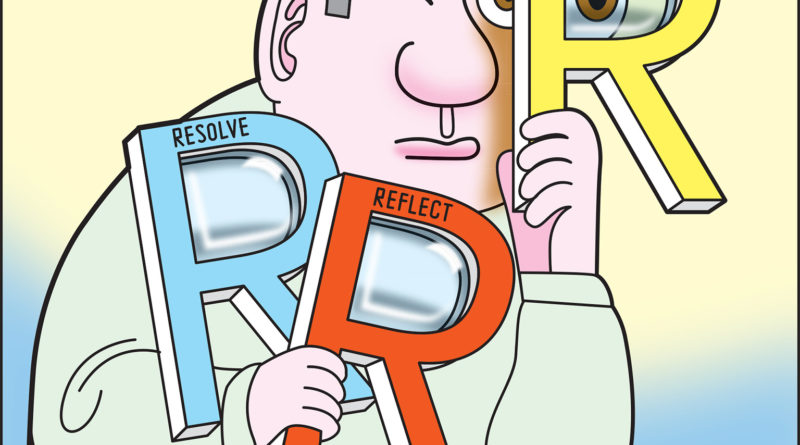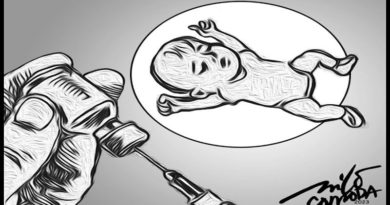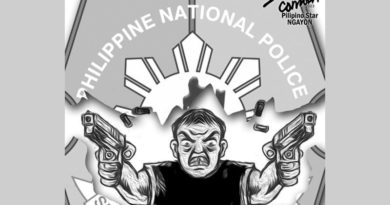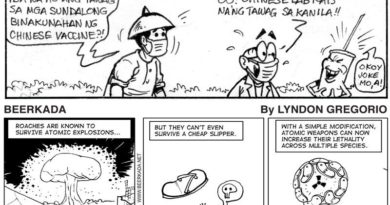COVID-19 SPECIAL: By Invitation- David Chan- A toolkit to deal with negative reactions in the Covid-19 crisis
Understanding our own and others’ biases helps us respond better to difficult situations
On Tuesday, when Singapore was at the midpoint in the four-week Covid-19 circuit breaker meant to last until May 4 to stem the spread of the coronavirus, Prime Minister Lee Hsien Loong announced the extension of the period by another four weeks to June 1.
Existing measures were also further tightened. Entry restrictions to hot spot areas such as popular wet markets were put in place to control crowding. The number of businesses deemed essential services and allowed to operate was cut.
The extension of the measures aims to minimise people movement and prevent mingling in the community. One key reason was that the daily number of unlinked cases – infections that cannot be traced to previous cases – did not decline even after two weeks of the circuit breaker, indicating the continual presence of undetected cases in the community.
Naturally, people are disappointed that the circuit breaker has to be extended. The coronavirus situation has also produced various negative reactions that both leaders and people themselves have to deal with. In this essay, I will share some suggestions on how to handle negative reactions and avoid the pitfalls produced by our human biases.

SPACE RESERVE FOR ADVERTISEMENT
VARIETIES OF NEGATIVE REACTIONS
The tightening of the circuit breaker measures would have dismayed and inconvenienced many, even though support packages for businesses and workers will be extended through next month.
Those isolated at home or in their dormitories will find it increasingly difficult to cope – psychologically and in their daily functioning.
For example, working from home through telecommuting saves commuting time but may also create tension between work and personal or family life when individuals are unable to juggle competing demands now occurring in the same physical location (home) and time period.

SPACE RESERVE FOR ADVERTISEMENT
Working parents with young children in particular may find it difficult to balance working from home and having to attend to children’s needs given that schools and childcare facilities are closed.
It also becomes more challenging if demanding supervisors expect their subordinates to attend online meetings and work outside their normal working hours. Those in positions of power need to be more respectful of the people they lead and not encroach on hours after work.
In addition to having to multitask and deal with competing demands, dealing with a pandemic like Covid-19 is already a stressful experience that can readily generate negative emotions or reactions.
People may experience fear (Will I get infected?), anxiety (Will my business survive the extended circuit breaker?), hopelessness (We will never recover), loneliness (There is no one that I can turn to), confusion (Is it better to wear or not wear a mask when I am jogging outside?), anger (This violation of the safe distancing rule is unacceptable!), feelings of injustice (This differential treatment of the two violations is unfair – it’s double standards) or even denial and engage in bargaining behaviours (Can I just not wear the mask for this one time?) or withdrawal behaviours (I don’t care any more).

SPACE RESERVE FOR ADVERTISEMENT

For some individuals, boredom, feelings of injustice or self-centred interests will override their sensibility and sense of social responsibility, and they will violate circuit breaker measures (either negligently or knowingly) or even influence others to do likewise.
Negative emotions can easily get magnified. They can create a negative spiral that gets out of control and proportion when we do not recognise that the feelings are driving our attitudes and actions, do nothing to address them or reinforce the feelings by engaging only with others who share the same sentiments.
All of us need to learn now how to deal with negative reactions and mitigate their impact, especially when it is possible that the Covid-19 crisis will get worse.


SPACE RESERVE FOR ADVERTISEMENT
ADOPT THE 3RS APPROACH
How then to respond effectively to deal with negative events and manage our negative gut emotions and reactions? I suggest we adopt what I call the 3Rs approach – refrain, reflect and resolve.
Refrain Refrain means to control the impulse to immediately argue, advocate or act in a way that is driven by how we are feeling at the moment.
It worsens the situation when others are also consumed with emotions and not thinking rationally. Never react in a patronising or provocative manner – it will only intensify the experience of our negative emotion. For example, if someone in line is standing too close to you, gently gesture to the person to observe the safe distancing marking on the floor, and do so with a smile.
More generally, when dealing with disagreement, be composed, not confrontational. It helps to be calm and cordial. Ask questions to clarify and ascertain facts.
Treat others with dignity and respect, and they will become more reasonable, and more likely to focus on the positives than magnify the negatives.
Reflect Think through and identify the information or event, and the sources of our stress and strain.
Learn to see things from another’s perspective. Reflect on how things have come to this situation where we have to deal with negative events and why we are reacting negatively. This often involves reinterpreting the situation because we tend to first interpret things in a way to fit our beliefs and position.
Rather than see the prolonged circuit breaker period as a nuisance, we can reframe the experience as an opportunity to take control of our diet or learn a new skill. We may want to relook our business model, consider a job switch, rearrange work priorities or revisit career goals.
Make an effort to gather information from multiple sources and try to be objective. Consult others who have expertise, especially those who can be trusted to tell the truth and provide sincere advice. Identify and acknowledge the mistakes we may have made.
Resolve Take concrete actions to reduce damage and stressors, repair relationships and resolve issues. Be humble and seek help when needed.
When there are disagreements, focus on common and complementary interests, even if differences remain.
So, when negotiating work-related arrangements to adjust to the circuit breaker measures, both employers and employees need to aim for win-win outcomes. This often involves being gracious and generous in spirit, without compromising facts, truth and integrity.
When an issue is successfully resolved, learn from the experience and identify relevant features of the solution process to adapt and apply to other situations or future ones.

SPACE RESERVE FOR ADVERTISEMENT

SPACE RESERVE FOR ADVERTISEMENT
NEGATIVE REACTIONS AND LEADERSHIP
In a crisis, people must learn to deal with their negative emotions, and leaders too need to manage these public reactions. But how people react is also influenced by their leaders’ attitudes and actions.
So, leaders in all sectors and at all levels need to understand how negative reactions emerge and how they relate to the major types of human cognitive biases. They should self-reflect regularly to avoid themselves falling prey to these biases when they make decisions and judgment calls.
I have previously written on various well-established human biases. Let me reiterate three types of biases that we need to guard against in this circuit breaker period.
Overconfidence bias Overconfidence is ubiquitous when humans make judgments and decisions. Most people are also overconfident about the accuracy of their forecasts.
There is a substantial gap between what people think they know and what they actually know.
Research shows that this disconnect between self-belief and reality is larger for people with higher academic achievements, experts in various fields, and those in positions of authority and power.
Confirmatory bias Confirmatory bias is the human tendency to selectively seek out and interpret information in a way that will likely confirm one’s preconceived belief or position. We see what we expect to see.
The same decision, event, statement or data can mean something very different to different individuals or groups.
The problem of confirmatory bias gets more severe if the authority structure and dynamics in the policy team encourage groupthink, where members of a highly cohesive group withhold dissenting views to go along with majority opinion. Many misunderstandings and incorrect conclusions could have been avoided if decision makers had asked: “What else could it mean?”
Causal attribution bias When we try to understand or explain why we do well, we tend to attribute our own successes to internal factors such as our own ability, effort, plans, choices or judgments.
But we tend to attribute our failures to external factors – we say bad luck, the task is difficult, the problem is complex, or the situation has changed.
And when we make causal attributions about others, we tend to do the reverse – we see external factors in their successes and internal factors in their failures.
That is why public perceptions often differ significantly from leaders’ perceptions. Consider, for example, the spike in Covid-19 cases among foreign workers in the dormitories. Leaders may say this is due to a rapidly evolving situation that is uncertain, complex and volatile.
But the public – especially when they do not have relevant information or understand trade-offs involved – is more likely to attribute the negative outcome to the leaders’ problem-solving ability, believing that they were careless or incompetent.
Conversely, leaders may choose to credit a serendipitous or positive outcome to good policy design and execution. But the public is more likely to attribute it to luck, or to take the view that a leader with ample resources should be expected to produce such results.

SPACE RESERVE FOR ADVERTISEMENT
MOVING FORWARD
Since the beginning of the coronavirus outbreak, Singapore has rightly emphasised that what is at stake are people’s lives and livelihood, that people’s well-being must be at the centre of what we do in managing the crisis.
We can be realistically confident that we will defeat the coronavirus if we are self-disciplined and socially responsible, and if we find our leaders trustworthy.
Our trust in leaders increases if they are able to solve urgent practical problems, say what they mean and mean what they say, are objective, transparent, fair and accountable when they make judgments and decisions, and understand, empathise with and prioritise the people’s needs and concerns.
Also, regardless of who we are, we need to better understand why people react the way they do, and how to deal with negative emotions and experiences. This affects our adaptability and resilience as individuals, families, organisations and a society.
When we understand people’s perceptions and reactions, we will all be more psychologically prepared to face the Covid-19 crisis and its great disruptions, both now and in the future.
• David Chan is director of the Behavioural Sciences Institute and professor of psychology at the Singapore Management University.

SPACE RESERVE FOR ADVERTISEMENT











